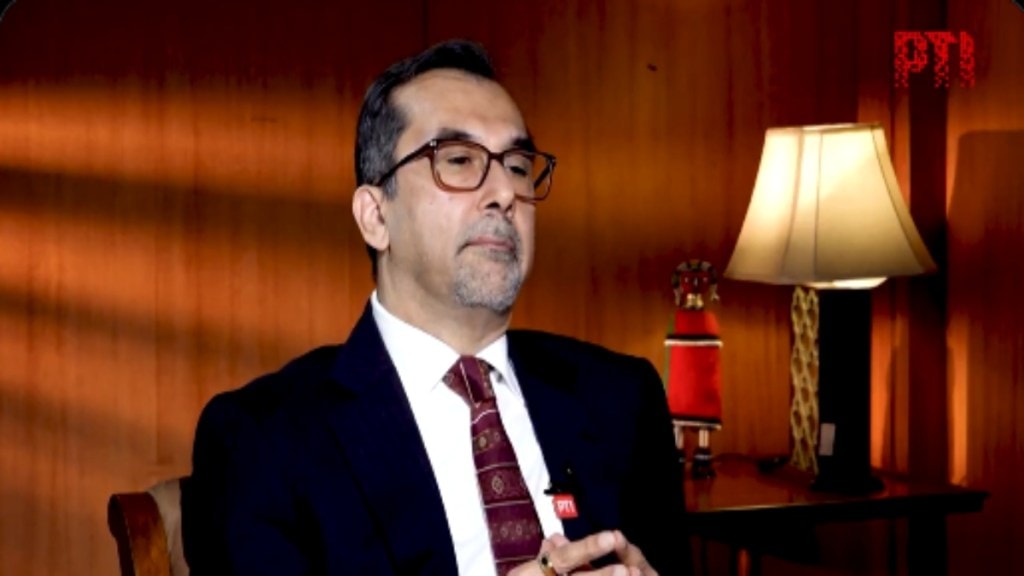The controversy surrounding long work hours has recently gained momentum with statements from business leaders such as SN Subrahmanyan, Chairman and Managing Director of Larsen & Toubro Ltd, advocating for a 90-hour workweek. In contrast, ITC Ltd Chairman Sanjiv Puri has offered a different perspective, emphasising that alignment with the company’s vision and passion for the work is more crucial than the number of hours employees put in.
Vision Over Hours: Sanjiv Puri’s Philosophy
In a recent interview with PTI, Puri highlighted that for employees at ITC, it’s about being part of a grand journey rather than focusing on the specifics of work hours. He used the analogy of workers building a castle, where each worker may view their task differently—some might say they’re laying bricks, others might describe themselves as building walls, but the ultimate goal is for all to understand they are building a castle.
Asked if he is saying that mean if he would rather not put a number to the work hours at ITC, he said, “We would not do that. We would rather like people to be part of the journey and feel passionately involved,” Puri said, explaining that employees should be driven by the purpose and vision of the company. He made it clear that ITC does not focus on monitoring individual hours, instead fostering an environment where employees are empowered to make a difference and actualise their potential.
A Flexible Work Environment at ITC
One of the key aspects of ITC’s approach is the flexibility it offers its employees. Puri shared that the company allows a flexible work environment, including the option to work from home for two days a week. This flexibility is part of a broader philosophy of supporting employees’ personal well-being and professional growth without the emphasis on strict work schedules.
“It’s not so much about really monitoring each individual’s number of hours. It’s more about enabling individuals to help them actualise their potential,” Puri explained, reinforcing that achieving goals and contributing to the company’s mission is more important than merely tracking time spent at the office.
The 90-Hour Workweek Controversy
The debate about work-life balance was reignited after Subrahmanyan’s comments, where he advocated for a gruelling 90-hour workweek and questioned employees who stayed home on Sundays. His remarks, which were widely circulated on social media, sparked heated discussions about work-life balance and the demands placed on employees in India’s corporate world.
Puri responded to the controversy by noting that the philosophy behind Subrahmanyan’s comments differed from ITC’s approach. He explained that at ITC, the focus is on empowering employees with a clear understanding of the company’s vision and values. “Vision, values, and vitality are what ITC is all about,” he added, emphasizing that the company provides the resources and freedom necessary for employees to succeed and contribute to the company’s growth.
Work-Life Balance and the Larger Debate
Puri’s remarks come amid a larger conversation about work culture in India. While Subrahmanyan’s call for longer work hours reflects a vision of collective effort to drive progress, many in the business community, such as RPG Group Chairman Harsh Goenka, have criticised such views, warning that longer working hours could lead to burnout rather than success.
The debate echoes similar concerns seen globally, particularly in China’s “996 culture,” which advocates for a punishing 9 am to 9 pm, six-day workweek. This culture has sparked debates about the sustainability of such work practices and the long-term impact on workers’ mental and physical health.
The Importance of Individualized Work-Life Balance
Puri also touched on the notion of work-life balance, emphasizing that there isn’t a one-size-fits-all approach. His views align with those of business leaders like Narayana Murthy, co-founder of Infosys, who previously suggested a 70-hour workweek. However, Puri argued that work-life balance is highly individualized, with different people finding satisfaction in different amounts of time spent with family or in personal pursuits.
“Your idea of work-life balance should not be imposed on me and my idea shouldn’t be imposed on you,” Puri stated, reinforcing that each individual’s approach to balance is personal and should be respected.
Empowering Employees for Success
Sanjiv Puri’s approach to work culture at ITC presents a stark contrast to the 90-hour workweek philosophy, focusing on empowerment, vision alignment, and individual potential rather than rigid work hours. His comments reflect a broader shift in corporate culture, where flexibility, trust, and personal well-being are increasingly prioritized alongside organizational goals. As the debate over work-life balance continues, Puri’s perspective offers a compelling case for fostering an environment where employees are not just driven by hours worked but by the passion and purpose behind their contributions.

